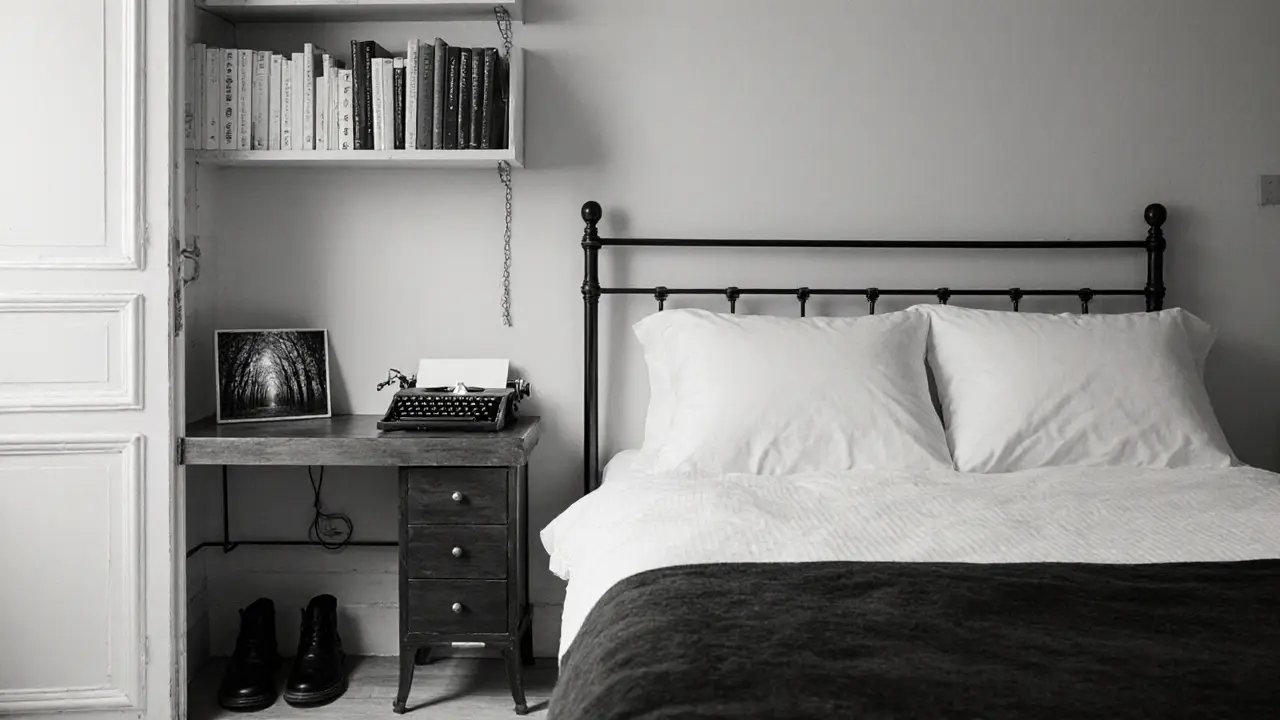The Real Lives of High-Class Escorts in Paris

Nov, 15 2025
Paris isn’t just about the Eiffel Tower and croissants. Beneath its polished surface lies a quiet, tightly guarded world-high-class escorts who move through luxury hotels, private art galleries, and Michelin-starred dinners, not as objects, but as people with complex lives. They’re not what you see in movies. No glittery dresses on street corners. No desperate calls for help. These women (and some men) operate with precision, discretion, and boundaries most people never consider.
How They Choose Their Clients
It’s not about who pays the most. It’s about who respects the rules. Many high-class escorts in Paris screen clients like a CEO interviews a potential partner. They ask for references. They check social media. Some require a video call before agreeing to meet. One escort, who goes by the name Claire in private circles, told me she turns down 9 out of 10 inquiries-not because they’re cheap, but because they’re rude, entitled, or pushy.
Her clients? Mostly executives from Germany, Switzerland, and the U.S.-men who travel often, value silence, and don’t want small talk. They pay €800 to €1,500 per hour, but the real cost is the expectation: no demands, no gifts, no emotional entanglement. Claire says, "I’m not here to fix your marriage. I’m here to give you an hour where you don’t have to perform."
The Routine Nobody Talks About
Most escorts in this tier don’t work every night. They schedule 2-3 appointments a week, often during weekday afternoons or early evenings. Why? Because weekends are for themselves. One woman, who works under the alias Léa, spends her Sundays hiking in the Forest of Fontainebleau. She reads poetry. She cooks for herself. She doesn’t answer calls from clients on Sundays. Ever.
Her Tuesday might start with a 10 a.m. appointment at the Four Seasons, followed by a massage at a private spa, then a walk along the Seine before dinner at a quiet bistro. She doesn’t post photos. She doesn’t use Instagram. Her phone is locked with a passcode only she knows. Her apartment in the 16th arrondissement has no security cameras. She trusts no one to watch her.
How They Stay Safe
Safety isn’t an afterthought-it’s built into every detail. Most use encrypted messaging apps like Signal or Threema. They never give out their real names. They use burner phones for client contact. They have a trusted friend who knows their schedule and checks in at set times. If a client doesn’t respond to a check-in message, the friend calls the police.
Some hire bodyguards for high-profile clients. Others work with agencies that vet clients through background checks and legal contracts. One agency in Paris, which operates under the guise of a "luxury concierge service," requires all clients to sign a non-disclosure agreement. Violations result in legal action. No exceptions.

The Emotional Labor Nobody Sees
It’s easy to assume these women are detached. They’re not. Many spend hours learning about their clients’ lives-what they lost, what they miss, what keeps them awake at night. They listen. They remember birthdays. They don’t judge. But they don’t pretend to care beyond the appointment.
One escort, who works under the name Élodie, said she once had a client who cried during their third meeting. He didn’t say why. She didn’t ask. But she brought him tea the next time. He didn’t cry again. He thanked her. That’s it. That’s the boundary. She doesn’t take his hand. She doesn’t text him afterward. She doesn’t want to be his therapist. She wants to be paid for her time, not her soul.
Why They Stay in Paris
Paris offers something no other city does: anonymity wrapped in elegance. You can walk into a bookstore in Saint-Germain and no one knows you’re an escort. You can sit at a café in Montmartre and sip espresso without being stared at. The French don’t ask questions. They respect privacy.
Many escorts here have degrees-literature, psychology, art history. Some teach part-time. Others write novels under pseudonyms. One woman runs an underground book club for other women in the industry. They meet in libraries, never in bars. They talk about Proust, not clients.
They don’t call themselves "sex workers." They say "companions." Because in French, "compagnon" implies presence, not performance. It’s about being there. Quietly. Thoughtfully. Responsibly.

The Cost of Discretion
Discretion isn’t free. It costs relationships. Many escorts have no family nearby. Some cut ties years ago. Others live alone in apartments they bought with cash. They don’t tell their neighbors what they do. They don’t invite people over. They don’t post vacation photos. They live like ghosts in plain sight.
One woman, who spent 12 years in the industry, moved to Lyon last year. She said Paris became too loud. Too many people asking questions. Too many cameras. Too many apps. She now works with a smaller network, fewer clients, and more peace. "I didn’t leave because I was tired," she said. "I left because I wanted to remember what silence feels like."
What They Do When They Leave
Most don’t retire. They transition. Some open boutique hotels. Others become consultants for luxury brands, advising on client experience. A few start legal businesses-art galleries, florists, private dining clubs. One former escort in Paris now runs a high-end flower delivery service for expats. She says the skills are the same: knowing what people need before they say it.
There’s no public celebration when they leave. No press release. No interview. They just stop answering calls. Their websites disappear. Their numbers go dark. Sometimes, years later, you’ll see their name in a book or a gallery credit. No mention of where they came from.
They’re Not a Fantasy. They’re Real People.
High-class escorts in Paris aren’t glamorous stereotypes. They’re not tragic figures. They’re not victims. They’re not villains. They’re women and men who made a choice-to trade time, presence, and emotional intelligence for autonomy, financial freedom, and control over their lives.
They don’t need your pity. They don’t want your admiration. They just want to be left alone-to live quietly, to work on their terms, and to disappear when they’re ready.
That’s the secret. Not the money. Not the luxury. Not the locations. It’s the quiet dignity of choosing your own path-and refusing to let anyone define it for you.